- Home
- Parnell Hall
Lights! Camera! Puzzles!
Lights! Camera! Puzzles! Read online
LIGHTS!
CAMERA!
PUZZLES!
A PUZZLE LADY MYSTERY
PARNELL HALL
PEGASUS CRIME
NEW YORK LONDON
For Claiborne,
who greenlit the project
MOVIE STARS
I would like to thank my producer, Will Shortz, for taking time off from editing the New York Times crossword puzzle column to create the Sudoku used in this book.
I would like to thank my screenwriter, speedy Fred Piscop, for creating the crossword puzzle for the book. Despite the fact it took him under an hour, I hear early Oscar buzz.
And I would like to thank my editor, Ellen Ripstein, the American Crossword Puzzle Tournament Champion, for editing the puzzles, and keeping watch on the continuity.
Without these people, this film could never have been made.
CAST OF CHARACTERS
Cora Felton...........................................The Puzzle Lady
Sherry Carter...........................................Cora’s niece
Jennifer...........................................Sherry’s daughter
Aaron Grant...........................................Sherry’s husband
Melvin Crabtree...........................................Cora’s ex-husband
Becky Baldwin...........................................Cora’s attorney
Sergeant Crowley...........................................Cora’s ex
Perkins...........................................Crowley’s detective
Stephanie...........................................Crowley’s ex
Chief Harper...........................................Bakerhaven police chief
Sam Brogan...........................................Harper’s deputy
Rick Reed...........................................Channel 8 TV reporter
The Movie Cast
Angela Broadbent...........................................Cora
Thelma Blevins...........................................Present Day Cora
Fred Roberts...........................................Melvin
Steve Hawkins...........................................Melvin
The Movie Crew
Sandy Delfin...........................................Director
Howard Prescott...........................................Producer
Chuck...........................................Production manager
Nelson...........................................Screen writer
Betsy...........................................Script supervisor
Max...........................................Gofer
Karen Hart...........................................1st gofer girl
Melinda Fisher...........................................2nd gofer girl
Patrick Monahan...........................................Karen’s boyfriend
Bruno Rossi...........................................Sandy’s bodyguard
Binky...........................................Teamster
1
You’re actually going to do it?” Sherry Carter said, incredulously. She turned off the flame under the skillet she was warming, a sure sign that she was upset. Usually nothing disturbed her cooking.
“I’m thinking about it,” Cora Felton said.
“You’re thinking about doing it?”
“I’m also thinking about not doing it.”
“Cora.”
“I haven’t decided to do it. I’m weighing my options.”
“Oh. That’s never good. What options are you weighing?”
“It’s a job opportunity.”
Melvin Crabtree’s tell-all memoir, CONFESSIONS OF A TROPHY HUSBAND: MY LIFE WITH THE PUZZLE LADY, had been optioned for the movies. Cora had been offered the position of associate producer, undoubtedly at Melvin’s urging. Cora resented him for it. Her least favorite ex-husband always had a way of sticking the knife in. Getting her to work on her own exposé had to be delicious for him.
“For one thing, we need the money,” Cora said.
“We don’t need it that badly.”
“Oh, please. Granville Grains suspended their advertising campaign the minute the book came out. Like it or not, those TV ads were half our income.”
For years the Puzzle Lady had hawked breakfast cereal to schoolchildren on national television. Her ads were immensely popular. The cereal company’s reaction was a good barometer for how bad the situation was.
“We have the Puzzle Lady column,” Sherry said. “We have your Sudoku books.”
“Have you checked our royalty statements? Sales are down. The Puzzle Lady name took a serious hit from Melvin’s book.”
“So you’re going to make it worse by doing the movie.”
“They’re doing the movie whether I help them or not.”
“So why help them?”
“I want to have some control. I want to know what’s going on. I don’t want to walk into a theater a year from now and go, oh, my God!”
“You’ll do that anyway.”
“Yeah, but I won’t be shocked. I’ll know what’s coming.”
“You want to see the train that hits you.”
“Not exactly the way I would have phrased it.”
“Well, you phrase it then. You’re the wordsmith.”
“Oh, low blow.”
Cora Felton was not the wordsmith. Sherry was. Cora Felton could not solve a crossword puzzle to save her life. Sherry Carter constructed the crosswords and wrote the nationally syndicated crossword column that made the Puzzle Lady famous. Cora Felton’s picture appeared on the column, but she was the Milli Vanilli of crucverbalists, an arrangement that allowed Sherry to hide from an abusive ex-husband. That was no longer an issue, but the deception continued. It was one of the few things Melvin had not revealed in his book.
Jennifer came racing through. Her new shoes went clack, clack, clack on the kitchen floor.
“My God, are those tap shoes?” Cora said.
“They’re big girl shoes,” Jennifer said. She stood on one foot and raised the other in a most indecorous position to show them. “See? Charlotte Wintergreen doesn’t have shoes like this.”
“Who’s Charlotte Wintergreen?” Cora said.
Jennifer rolled her eyes. How could anyone not know who Charlotte Wintergreen was?
Buddy the toy poodle ran by. Jennifer let out a whoop and clattered after him.
“What grade is she in?” Cora said.
“Second.”
“How many grades are there?”
“All right, look,” Sherry said. “We have your alimony. We have Aaron’s salary from the paper.” Sherry’s husband was a reporter at the Bakerhaven Gazette.
“They still have print media?” Cora said.
“Bite your tongue. We have the Puzzle Lady column and we have your Sudoku books. Put that all together and we make our expenses.”
“Including property taxes, insurance, Unincorporated Business tax, and my drug habit?”
“Don’t joke about a drug habit. Next thing you know it will wind up in the damn movie.”
“It’s probably already there,” Cora said.
“You didn’t have a drug habit.”
“I didn’t have a three-way with a sitcom actress either, but it made the book.”
“You mean that never happened?”
“Sorry to disappoint you.”
“I’m not disappointed,” Sherry said. “I bet Melvin was.”
2
Slowpoke,” Cora Felton muttered as she overtook the SUV on the Merritt Parkway.
“He’s doing fifty-five,” Becky Baldwin pointed out.
“So?”
<
br /> “That’s the speed limit.”
“They always give you ten miles over the speed limit.”
“Who does?”
“The cops. You think they’re going to bust you for going fifty-six? They’re not going to notice you going fifty-six. You go over sixty-five, you attract attention.”
“You went over sixty-five.”
“To pass the SUV. You gotta speed up when you’re passing. You don’t wanna get stuck in the left-hand lane. Some of those curves are narrow. The guard rails are close.”
“You shouldn’t pass on curves.”
“Are you going to be a pain in the ass all the way to New York?”
Becky pushed the blonde bangs out of her eyes and smiled. “Did you ever consider what a bad sign it is to bring a lawyer to your first job interview?”
Though she could have passed for a swimsuit model, Becky Baldwin was indeed a lawyer, and a good one. Cora occasionally did investigative work for her, and Becky occasionally defended Cora from one criminal charge or another. Cora was as good at investigative work as she was at getting into trouble. The two seemed to go hand in hand.
“This is not a job interview,” Cora said. “It’s a production meeting.”
“For the movie they’re making?”
“That’s right.”
“The one they want you to be associate producer?”
“That’s right.”
“A position you have not taken?”
“What’s your point?”
“It’s a job interview. And you’re bringing a lawyer to it. And you’ve probably got a gun in your purse.”
“I always have a gun in my purse.”
“I rest my case.”
“What, you expect me to leave my gun behind just because I have a meeting?”
“Not at all. I just hope you don’t have to shoot your way out of it.”
“Don’t be a wiseass. You know why I brought you. Our contract with Melvin is very specific. It carefully details what he may or may not say in his book. It’s important that agreement carries over to the movie.”
“If you read your contract you’ll see that it does.”
“I know the contract says it does. That doesn’t mean Melvin won’t try to weasel out of it.”
“And you want me to trap the weasel.”
“I want you to slay the weasel. And skin it and nail its hide to the barn. I also want you to size up the director and the screenwriter, plus any spare producers that may be hanging around.”
“You’re really worried?”
“Hey, the book was easy. You got one writer. Maybe a ghost writer. And an editor. And you can read what they wrote before it gets published. Movies are on little pieces of film. And audio tracks. With actors saying whatever the damn feel like. And even if they don’t they can do things in the editing room you wouldn’t believe. They can make the Puzzle Lady say, ‘I can’t do puzzles. I’m a harebrained twit who can barely tie her shoe.’”
“God forbid they should tell the truth.” Becky knew Cora couldn’t do crossword puzzles. She was one of the few people who did. “Is there anything in particular you want me to watch out for?”
“Slow drivers,” Cora said, as she swerved around a minivan. “They’re the worst.”
“There’s a work area ahead,” Becky pointed out.
“I know. That’s why I had to pass this guy. He’d take a half hour to go through it. Now, is there anything in particular I want you to watch out for? Yes. We want to see the script. As soon as possible, but definitely before I agree to do this. Is that clear?”
“It’s clear to me. I don’t know if we can force them to do it.”
“They have to show us the script. That’s not in the contract?”
“Script approval? No. You control what’s not in the script. You can’t tell them what is.”
“Well, who wrote that damn contract?” Cora grumbled. She came out of the work zone and floored the accelerator.
“I wouldn’t be in such a hurry,” Becky said. “I can recall going to New York for a meeting with you before and it didn’t go too well.”
“What happened?”
“The guy was dead.”
“Oh.” Cora considered that. “Well, look on the bright side.”
“What’s that?”
“This time it’s Melvin.”
3
I want to see the script,” Cora said.
Sandy Delfin laughed. The director had a laugh Cora was sure he found ingratiating, which she herself found annoying. “Of course that’s what you want to see,” he said, and then let the matter drop, as if that had answered the question.
Sandy had curly blonde hair and horn-rimmed glasses. He was one of those men who looked twenty-five but was probably close to fifty. He was a bundle of nervous energy and gave the impression that there were three or four meetings for other films he was directing he had to get to.
The director was flanked by two lackeys, a woman with a clipboard who was constantly thrusting it at him and pointing at one thing or another, and a bearded fellow with beady eyes who looked like a predator just waiting to strike.
The production meeting for Untitled Puzzle Lady Project was held in a suite of offices on 42nd Street. There was no name on the door, just a suite number, so Cora couldn’t tell if this was the producer’s production company, or just some offices they’d borrowed for the meeting.
“Where are we on casting?” Sandy said. He slipped it in so naturally it was a moment before Cora noticed he’d changed the subject.
“We’ve got some girls coming in tomorrow,” the producer said. Howard Prescott was a large man with snow-white hair, and the type of bulbous veiny nose one associated with a habitual drunk.
Cora bristled. Calling women girls was not high on her list of socially acceptable practices. Unless she was doing it, of course. But guys shouldn’t. Particularly guys in positions of power referring to someone they might hire.
But that was the least of it. One of Cora’s chief concerns about the movie was who would be playing her. Cora was prepared to take umbrage at the suggestion of any actress over sixty. Still, the concept of auditioning girls for the role did not sit well either.
Cora tried again. “About the screenplay . . . ?”
“Yes, of course,” Sandy said. “Nelson. How we coming with the screenplay?”
Nelson was a little man who looked like he’d wandered into the wrong meeting by mistake. He seemed shocked at being called on. Speaking in front of people was clearly not his strong suit.
“I have ideas for some scenarios. I’m fleshing them out.”
“Are we going to have pages to read from?” the producer said.
“That’s all right,” Sandy said. “I’ll improvise the audition.”
“You haven’t written a script?” Cora said.
Sandy smiled. “Not to worry,” he said, touching the side of his head. “I have it all up here.” Another expression Cora would come to hate. “The important thing is that you feel comfortable. You are, after all, the Puzzle Lady. This movie is about you. When you’re on location, you’ll be the person people want to talk to.”
Melvin leapt in. “You have nothing to worry about on that score. Cora’s a pro with the press. Gives great interviews. Comes up with snappy sound bites. Hell, she’s worth half your publicity budget.”
Melvin smiled as if he meant it. His teeth gleamed. The aging lothario had used his advance to better his appearance, and sported new caps. He had also invested in higher quality hair plugs, and his coif looked less artificial than usual. While still laughably dark for a man his age, the brown hair was textured and blended.
His suit was a little less shiny, a little more stylish. He had clearly been shaved by a barber. Cora couldn’t decide if he looked more like a wise guy, a refugee from the cast of Guys and Dolls, or a gigolo.
A college-age kid came in, all puppy-dog eager to do the right thing, an attitude practically guaranteed to do just the
opposite.
Sandy leapt on his entrance as a reason to change the subject, not that there was any subject to change. His mind seemed to flit from one thing to another. Cora couldn’t see that as being particularly helpful in a director.
“Max,” Sandy cried. “It’s about time. Do you have the thing?”
Max was a gofer, as production assistants were called in the movies. He held up a fat three-ring binder, an ominous portent, as it was nearly full, and they were still in preproduction.
“Well, pass it over,” Sandy said. “We mustn’t keep our guest waiting.”
Max sat on a folding chair, flopped the binder open in his lap.
“My God, is that all this project?” Cora said.
“No, that’s his last project,” Sandy said. “Max was on a Tristar film and doesn’t want anyone to forget it.”
Max found the paper he was looking for. He pulled it out and handed it to the director.
“It’s not for me,” Sandy said. “Give it to her.”
Max passed the paper over.
Cora looked at it and scowled.
It was a crossword puzzle.
Across
1 Neeson of "Schindler's List"
5 Relinquish by treaty
9 Penn & Teller's field
14 Black and white predator
15 Bug-eyed
16 Do penance
17 Start of a poem
19 Bowler's pickup
20 66-Across, notably
21 Goodies from Linz
22 Cariou of "Blue Bloods"
23 Gelato holder
24 Use a Singer
27 React to a bad pun
30 Places for mani-pedis
34 Monte ___ (gambling mecca)
37 More of the poem
39 Like most Turks
40 Sargasso or Salton
41 Small-budget film, informally
42 More of the poem
44 Guitar holder-upper
45 "So what __ is new?"
46 DuPont acrylic fiber
48 Overhead rails
49 Cave-dwelling mammals
51 Mischievous kid
54 Like hen's teeth, proverbially
57 Bach choral works
62 Arctic, e.g.
63 End of the poem

 Clicker Training
Clicker Training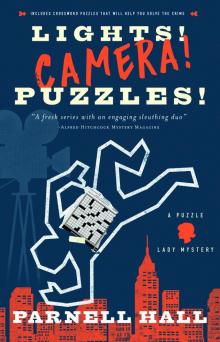 Lights! Camera! Puzzles!
Lights! Camera! Puzzles!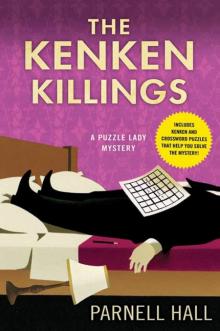 The KenKen Killings
The KenKen Killings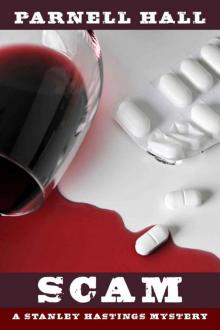 12-Scam
12-Scam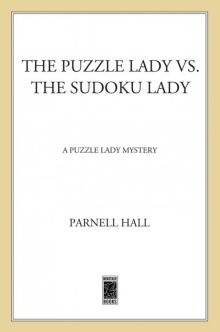 The Puzzle Lady vs. the Sudoku Lady
The Puzzle Lady vs. the Sudoku Lady 2 Murder
2 Murder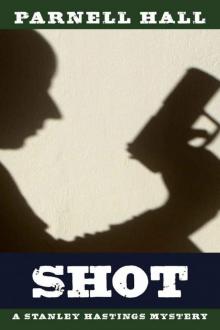 7 Shot
7 Shot You Have the Right to Remain Puzzled
You Have the Right to Remain Puzzled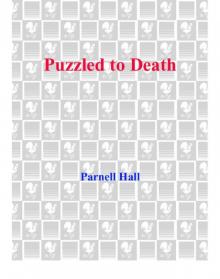 Puzzled to Death
Puzzled to Death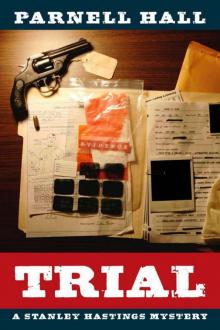 11-Trial
11-Trial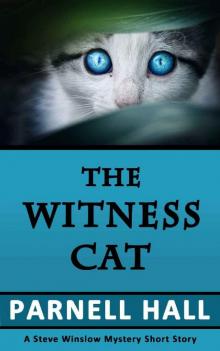 The Witness Cat (Steve Winslow Mystery)
The Witness Cat (Steve Winslow Mystery)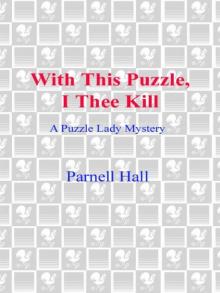 With This Puzzle, I Thee Kill
With This Puzzle, I Thee Kill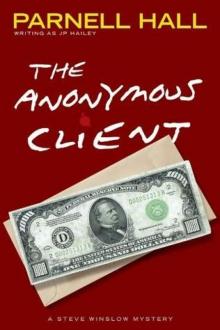 The Anonymous Client sw-2
The Anonymous Client sw-2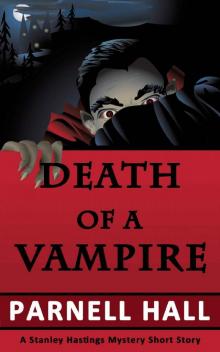 Death of a Vampire (Stanley Hastings Mystery, A Short Story)
Death of a Vampire (Stanley Hastings Mystery, A Short Story)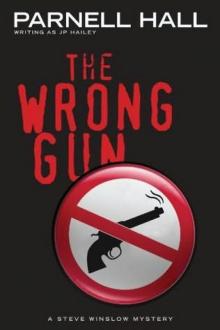 The Wrong Gun sw-5
The Wrong Gun sw-5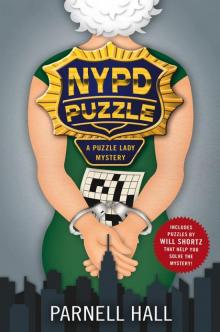 NYPD Puzzle
NYPD Puzzle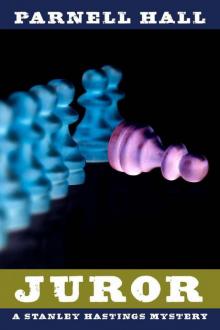 6 Juror
6 Juror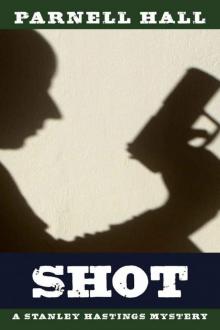 07-Shot
07-Shot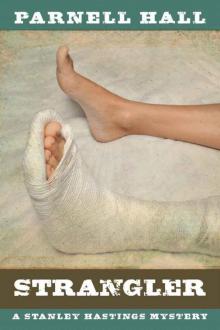 04-Strangler
04-Strangler 02-Murder
02-Murder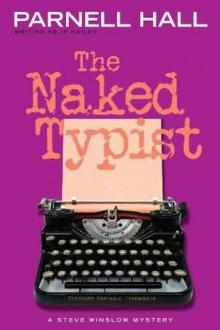 SW04 - The Naked Typist
SW04 - The Naked Typist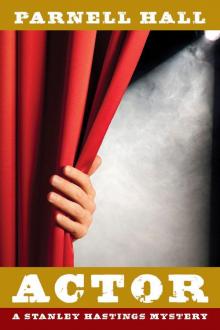 Actor
Actor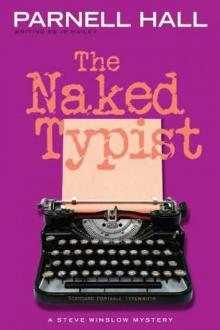 The Naked Typist sw-4
The Naked Typist sw-4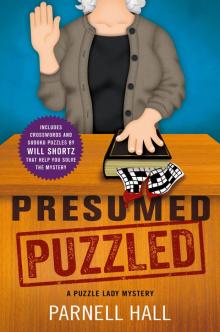 Presumed Puzzled
Presumed Puzzled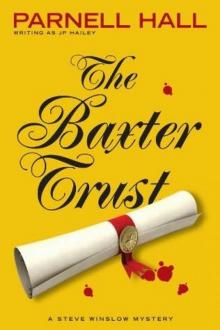 SW01 - The Baxter Trust
SW01 - The Baxter Trust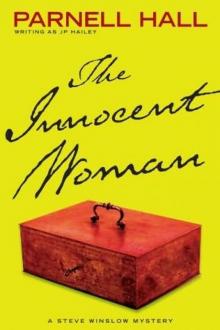 SW06 - The Innocent Woman
SW06 - The Innocent Woman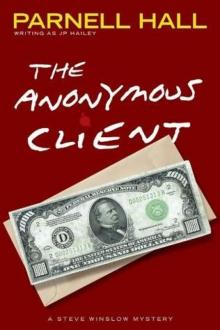 SW02 - The Anonymous Client
SW02 - The Anonymous Client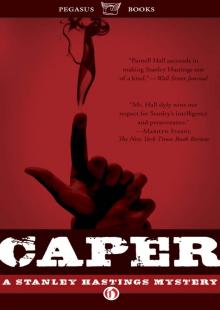 Caper
Caper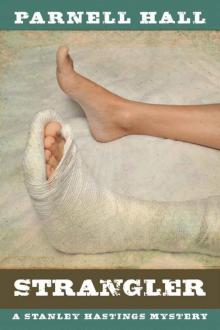 4 Strangler
4 Strangler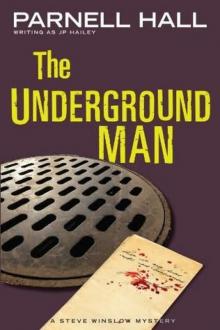 The Underground Man sw-3
The Underground Man sw-3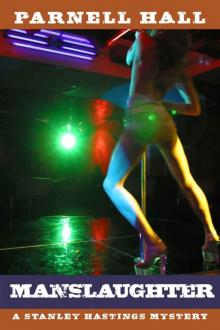 Manslaughter (Stanley Hastings Mystery, #15)
Manslaughter (Stanley Hastings Mystery, #15)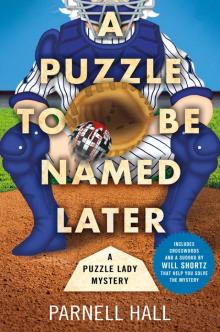 A Puzzle to Be Named Later--A Puzzle Lady Mystery
A Puzzle to Be Named Later--A Puzzle Lady Mystery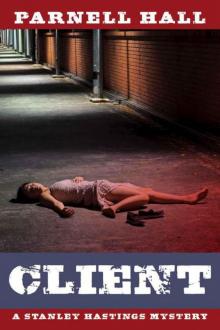 05-Client
05-Client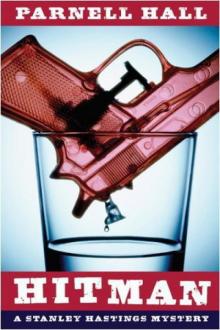 16 Hitman
16 Hitman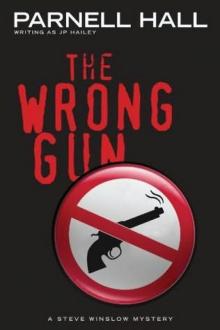 SW05 - The Wrong Gun
SW05 - The Wrong Gun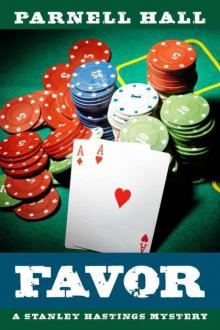 3 Favor
3 Favor Last Puzzle & Testament
Last Puzzle & Testament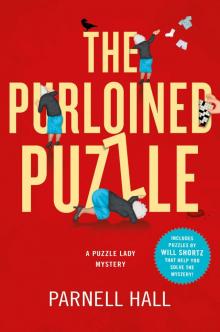 The Purloined Puzzle
The Purloined Puzzle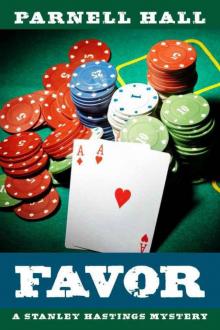 03-Favor
03-Favor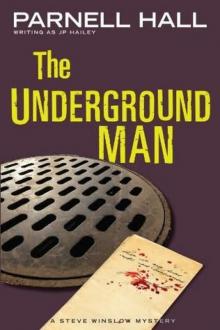 SW03 -The Underground Man
SW03 -The Underground Man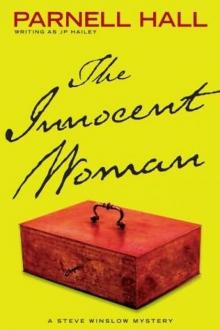 The Innocent Woman sw-6
The Innocent Woman sw-6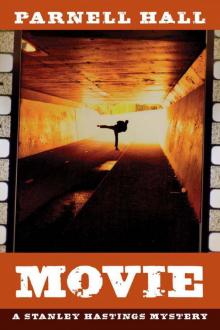 10 Movie
10 Movie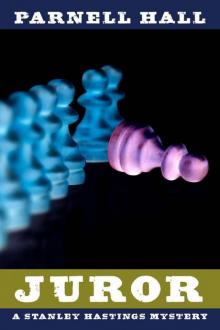 06-Juror
06-Juror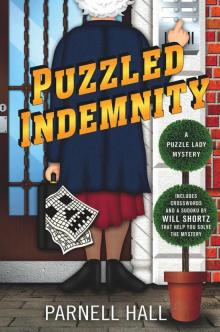 Puzzled Indemnity
Puzzled Indemnity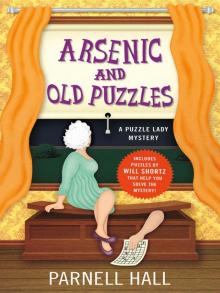 Arsenic and Old Puzzles
Arsenic and Old Puzzles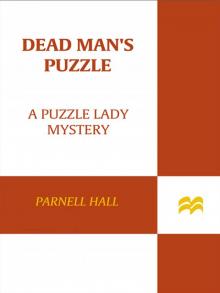 Dead Man's Puzzle
Dead Man's Puzzle Safari
Safari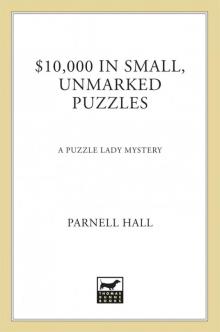 $10,000 in Small, Unmarked Puzzles
$10,000 in Small, Unmarked Puzzles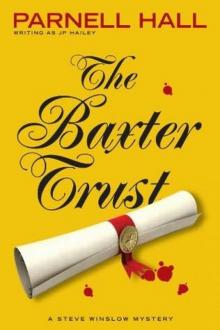 The Baxter Trust sw-1
The Baxter Trust sw-1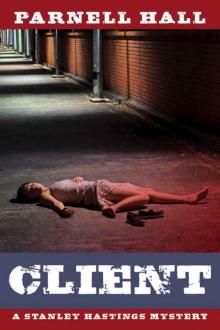 5 Client
5 Client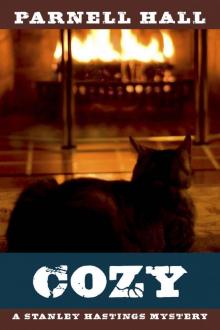 Cozy (Stanley Hastings Mystery, #14)
Cozy (Stanley Hastings Mystery, #14)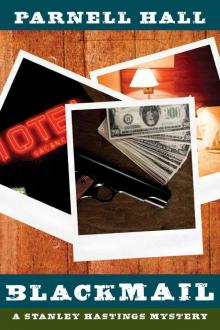 Blackmail
Blackmail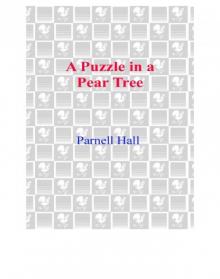 A Puzzle in a Pear Tree
A Puzzle in a Pear Tree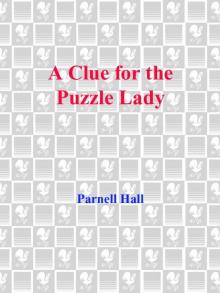 A Clue for the Puzzle Lady
A Clue for the Puzzle Lady Clicker Training (Stanley Hastings Mystery, A Short Story)
Clicker Training (Stanley Hastings Mystery, A Short Story)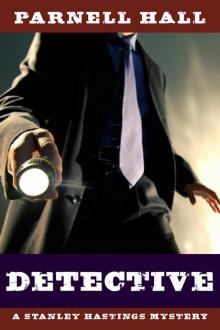 Detective (Stanley Hastings Mystery Book 1)
Detective (Stanley Hastings Mystery Book 1)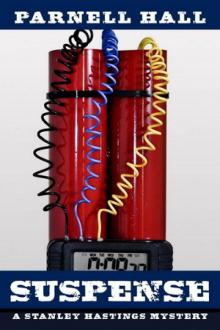 13 Suspense
13 Suspense